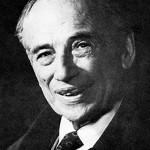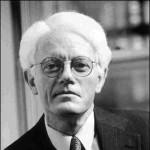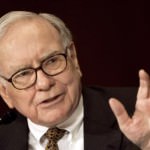History’s 5 Greatest Investors
“The individual investor should act consistently as an investor and not as a speculator.”
And the Lessons that Led Generations of Investors
By Kevin Kang, Managing Editor
 What is the difference between a good investor and a great one? Whether it’s market knowledge, large returns, or the uncanny ability to see opportunities, these five financial gurus have separated themselves from the crowd. You cannot live in the world of finance without hearing their names, so take the time now to memorize the stories of the five greatest investors of all time.
What is the difference between a good investor and a great one? Whether it’s market knowledge, large returns, or the uncanny ability to see opportunities, these five financial gurus have separated themselves from the crowd. You cannot live in the world of finance without hearing their names, so take the time now to memorize the stories of the five greatest investors of all time.
Benjamin Graham
[pullquote]The individual investor should act consistently as an investor and not as a speculator.[/pullquote]
Benjamin Graham was a professor at Columbia Business School as well as a professional investor. His 1934 books, Securities Analysis and The Intelligent Investor, are two of the most influential texts on investments and are used as a guide for new and experienced investors alike.
Graham passed away in 1976, but continued to be a huge influence in the world of finance. During his time as a professor, he taught his theories of “value investments” to his students. Two of his brightest pupils, Warren Buffett and Irving Khan, still use his style to amass fortunes of billions.
//
//
John Templeton
[pullquote]The four most dangerous words in investing are ‘This time it’s different.'[/pullquote]
According to Money magazine, Sir John Templeton was “arguably the greatest global stock picker of the century.” As a British citizen, Templeton started his investing career in 1937. His investment strategy was an extreme version of “buy low, sell high”: he purchased shares in companies during times of war and extreme pessimism.
Templeton also created some of the world’s largest investment funds, focusing on the international market. Templeton was also an avid philanthropist, donating millions to science, religion, and education.
Peter Lynch
[pullquote]Go for a business that any idiot can run – because sooner or later, any idiot is probably going to run it.[/pullquote]
Peter Lynch is known for popularizing the strategy of “invest in what you know.” He believed that laymen can identify a good stock if they understand the business. Lynch claimed that he found many of his good investments when out shopping with his family.
While earning his MBA from the Wharton School of Business, Lynch caddied for the president of Fidelity Investments. In 1996, he was hired as an intern, and quickly rose through the ranks to become Director of Research in 1974. Currently, he continues to work at Fidelity Investments as a research consultant.
Irving Kahn
[pullquote]Investors have no reason to feel bearish. True value investors are glad the markets are down.[/pullquote]
At age 104, Irving Kahn is currently the oldest financial analyst on Wall Street. Khan was a Teaching Assistant to the investor Benjamin Graham, and adapted Graham’s style of value investing.
Throughout his career, Kahn has built an impressive resume, including director of six different companies, president of the New York City Job and Career Centre, one of the first round of Certified Financial Analysts, and chairman and founder of Kahn Brothers Group. He continues to play an active role in researching stocks with his sons for his company.
Warren Buffett
[pullquote]Rule No.1 is never lose money. Rule No.2 is never forget rule number one.[/pullquote]
Known as the Oracle of Omaha, Warren Buffett has amassed a fortune of billions through his investments and is widely known as the greatest investor in the world. In 2008, Buffett beat out Bill Gates to become the richest person in the world according to Forbes Magazine.
In 1965, Buffett acquired the failing Berkshire Hathaway textile company and transformed it into a holding company. He used it to purchase other companies at low prices during the market collapse of 1973-74, and by 2006, these holdings had grown to 240 billion dollars. His style of “value investing” was influenced by his professor and mentor, Benjamin Graham. He claims that this strategy laid the foundation for his success and wealth.
ARB Team
Arbitrage Magazine
Business News with BITE.
Liked this post? Why not buy the ARB team a beer? Just click an ad or donate below (thank you!)
Liked this article? Hated it? Comment below and share your opinions with other ARB readers!


































Share the post "History’s 5 Greatest Investors"